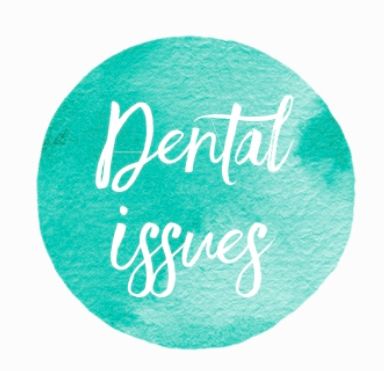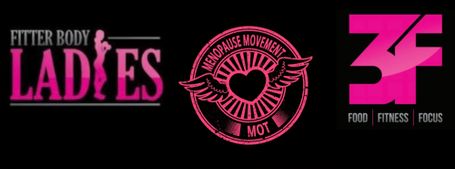
Dental Issues
Menopause mouth, another strange symptom can start up to three years before you’ve even realised that you’ve hit the big M. ‘Mouthwash’ sings Kate Nash. Maybe you’ve started to feel the need to use it more often?
WHY NOW?
Depleting oestrogen levels (DOL) dry out mucus membranes in your mouth and other moisture dependent areas. DOL can lead to a dry, or in some cases burning mouth, sensitive or bleeding gums, loose teeth, and tooth loss and can make your bones, including your jaw weaker. Increased thirst, difficulties chewing and swallowing, and perish the thought, problems talking, may be other dry mouth signs.
You may still be producing a decent amount of saliva but the quality declines, so it’s not doing its usual job, keeping the mouth moist. Add increased tongue sensitivity and your mouth becomes a pretty unpleasant place for your tongue to hang out!
And the good news is…. Regular dental check-ups should detect issues early on. Stay on top of dental hygiene, and your teeth and gums will benefit.
BE PROACTIVE
The best help for your dental issues during menopause Your dry or burning mouth, may, or may not, be a symptom of menopause. Medication or an underlying health condition could be the cause. See your dentist who’ll be able to work out if fluctuating hormones are to blame.
What to eat to help with dental and mouth issues
Vitamins and minerals may have a positive impact on your gums, teeth and mouth. As a guide eat more:
Vitamin A, helps maintain healthy mucous membranes, saliva flow and helps keep your gums healthy. Eat more: carrots, sweet potato, broccoli, and butter (in moderation due to the high fat content).
Vitamin B1 and B2, which is found in red meats and fish like salmon and sardines.
Vitamin D reduces gum inflammation. Eat more: cheese, mushrooms, fortified cereals, yogurts and soy milk. Oily fish SMASH – salmon, mackerel, anchovies, sardines and halibut.
Calcium Eat more: shellfish, sardines, broccoli, dairy, nuts & seeds.
Phosphorous. Eat more: garlic, onions, salmon, soya, beans & legumes (all also containing calcium) Magnesium – Helps the body absorb calcium and good for teeth and bones. Eat more: leafy greens, kelp, seaweed (sushi wraps), beans and nuts. Pumpkin seeds are a great source of magnesium.
ALA (alpha-lipoid acid) which is called the ‘Poor Man’s Root Canal’ treatment due to its effect at treating infection, found in the Hot Flush favourites milled linseeds, walnuts, pumpkin seeds – or in their oils.
What to avoid to help with dental and mouth issues
Reduce or cut out alcohol and caffeine, along with hot spices which may exacerbate dry mouth discomfort, and smoking which adds to the already heightened risk of gum disease in menopause.
Lifestyle & wellbeing to help with dental and mouth issues
Who wants to be long in the tooth? No-one! But dry mouth is an open invitation for gingivitis (gum disease). Oxygen in saliva deals with the bacteria, which would otherwise cause receding gums. No saliva, no deal. You’ll be left with irreversibly exposed gums, hence the expression ‘long in the tooth’. Prevention is better than cure and in this case there isn’t a cure once gums are exposed, so:
Flossing daily is crucial in removing food debris and plaque that nestle between your teeth.
Brushing becomes even more important. Time to invest in an electric toothbrush to get into the hard to reach places, where food lingers, giving bacteria an all you can eat buffet experience.
Change your toothpaste & mouthwash
Products promise so much: fresh breath, whiter teeth, cavity protection and stronger teeth but contain lots of chemicals that your newly sensitive dry mouth may react against. Time to try a different toothpaste? Our dentist, Jenny, advises using a good generic fluoride toothpaste. If you feel that you need to use mouthwash go for an alcohol-free one such as Colgate Plax alcohol-free sensitive anti-bacterial mouthwash to avoid the astringent effects of alcohol. Our dentist Jenny’s advice is that you clean your teeth regularly, you may not need mouthwash, as it can wash away the beneficial fluoride in your toothpaste.
When it’s OK to spit (and not rinse) After brushing, spit out fluoride toothpaste but don't rinse your mouth with water. You want the fluoride to coat and protect your teeth after a good clean. This is really beneficial if you suffer from sensitive teeth too. Added bonus, you’ll have minty fresh breath!
Saliva booster Chew sugar-free gum and suck sugar-free mints to stimulate saliva production. Use over the counter saliva substitutes, in the form of gels, sprays, lozenges and mouthwashes. Prescription drugs for dry mouth, (sialagogues) may increase sweating, worth bearing in mind if you’re suffering with hot flushes and night sweats.
Supplements worth trying for dental and mouth issues
These supplements may help support saliva production
Sea Buckthorn Oil: Helps support the mucous membranes. Take as a powder in water, juice or smoothie, look for Omega 7 SBA24 Sea Buckthorn Oil capsules formulation.
Calcium: Absorption is improved if taken with vitamin D and magnesium and may help to avoid jawbone erosion.
Black Cohosh: May help to balance oestrogen levels and relieve symptoms. Not for prolonged use. Dong Quai: May help with balancing hormone levels. It has an anti-coagulant effect, so it is essential that you don’t use it leading up to any surgical or dental procedures and tell your dentist you’ve been taking it.
As always check with your doctor if you are taking prescribed drugs or have any existing, or hormone-sensitive condition.
Alternative help for dental and mouth issues
Acupuncture Acupuncture and electro-stimulation may work on saliva glands forcing them into action. A 2010 study published in The British Dental Journal looking at acupuncture as therapeutic option for burning mouth syndrome (BMS), reported that it resulted in, ‘a significant reduction of burning sensation after three weeks of therapy.’ The results remained permanent 18 months after treatment and the study concluded: ‘acupuncture appears, in light of these data, a valid therapeutic choice in the management of BMS patients.’ Worth trying?
When to see your doctor about dental and mouth issues
Medicines aren’t usually prescribed for burning mouth syndrome as there isn’t enough evidence to show that they can help, but the British Medical Journal best practice advice is that CBT is sometimes used as research suggests talking about the problem can help you cope better and may reduce symptoms.
And then there’s always HRT…
HRT may help. It will increase oestrogen levels which may support the mucus membranes. Symptoms will return when you stop taking HRT. Some women report that it makes little, to no difference, but it may work for you. You’d need to weigh up the risks and benefits. The usual caveat here, this is something to be discussed with your doctor. There are pros and cons to taking HRT. See our vlog, ‘What is HRT’. We don’t take a view. It’s for you to decide whether it’s for you or not.
And we can help
Your Fbl Team x
© Copyright. All rights reserved.
